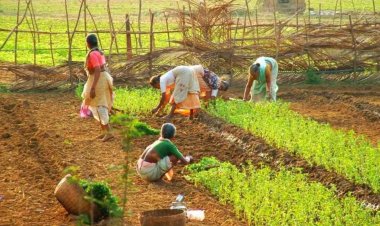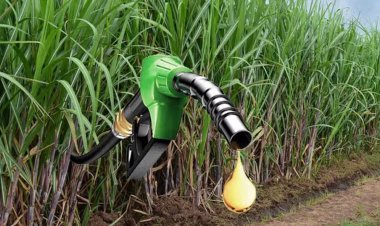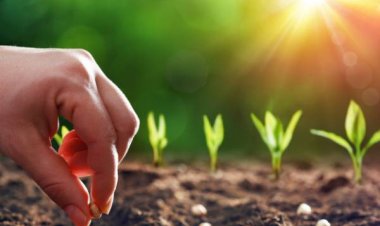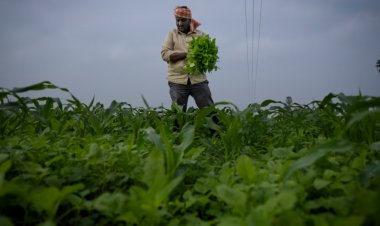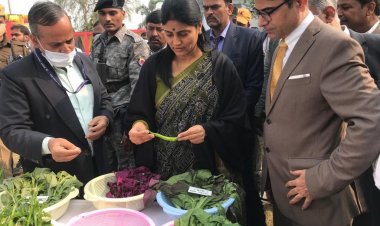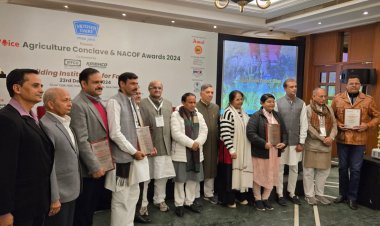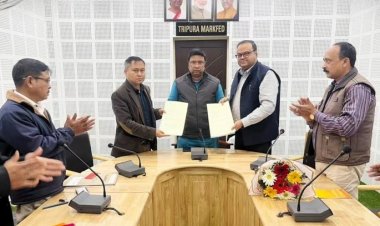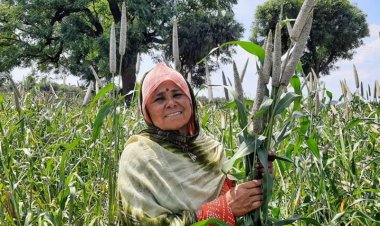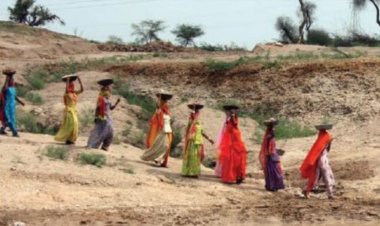World Food Day: Nation salutes Dr. MS Swaminathan
Following the path taught by Prof Swaminathan, agricultural research institutes will have to do important work towards strengthening farmers and farmer product organizations to adopt scientific methodology. Keeping food security in mind, in India, especially in resource-poor agricultural areas, there is a lot of diversity in the farming environment and agricultural assets. These variations significantly affect the income and expenditure of the agricultural industry due to limited resources and limited dissemination of technology. There is a difference. This gap has to be bridged through agricultural science, technology and innovation and general agricultural sectors must be made more profitable. Along with this, priority will have to be given to farmer welfare through increase in farmers' income and agriculture related business. We all have to work together to ensure that our every step is for the welfare of the farmers.
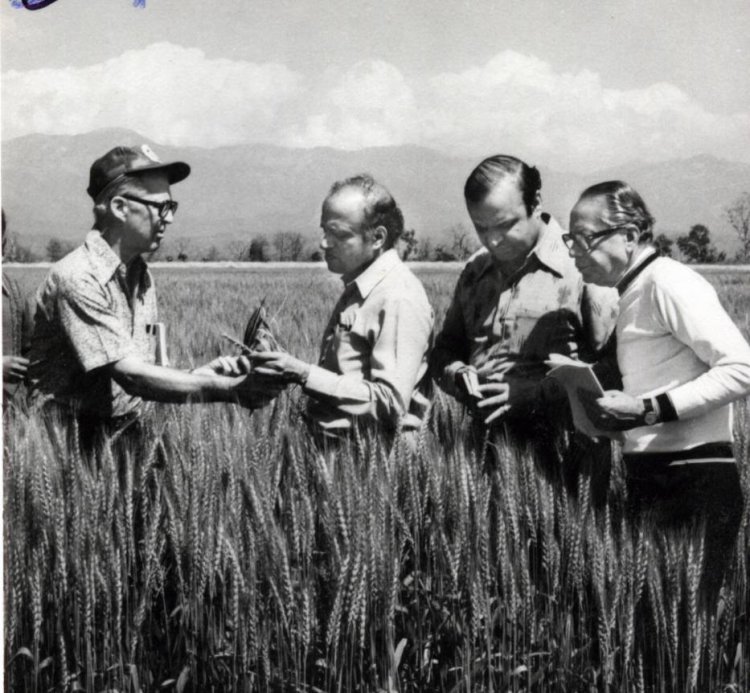
This year India is celebrating a trio of celebrations. On one hand, the International Year of Millets 2023 declared by the United Nations is being celebrated, while on the other hand, Prime Minister Narendra Modi is presiding over the G-20 Summit in the 75th Amrit Mahotsav of Independence.
Today (16th October), on the occasion of World Food Day, let us all Indians celebrate the hard-working lives of small and marginal farmers and the prosperity they have achieved and also the life of the father of this prosperity, Dr MS Swaminathan, who passed away last month. In the true sense, this would be the real tribute to Dr Swaminathan.
India is a country of small farmers and small-scale industries, which are the basis of its economic, social and political fabric. This is an important contribution of farmers in the country's food security and environmental sustainability. Food security is the biggest priority for 140 crore Indians. Farmers, small businesses and resilient food supply chains play a vital role in ensuring food security in the country, which is an important complement to national security. Nobel Prize-winning agricultural scientist Dr Norman Borlaug, while accepting the Nobel Prize in 1970, has said, “You cannot build peace in a hungry society.”
Keeping this statement in mind, thousands of agricultural scientists of India have made immense contribution in ensuring the food security of the country under the guidance of Dr M.S. Swaminathan. One of his three greatest achievements was the acceptance of agricultural science, technology and innovation in Indian agriculture by political and policy makers after independence. Its biggest result was that the National Agricultural Research System (NARS) could be created and the infrastructure of agricultural research institutions could be created in every corner of the country according to the crop-based and local agro-climatic conditions. At present, India's national agricultural research system is the largest in the world with agricultural education, research and extension institutions including 113 ICAR institutes, 74 state agricultural universities, 4 deemed universities, 3 central agricultural universities and 4 central universities.
The second biggest achievement of Prof Swaminathan was to successfully establish agricultural research and technical cooperation globally and transfer of agricultural technology from agriculturally rich developed countries to India. He also ensured that the semi-dwarf and high yielding varieties are properly evaluated by the farmers in the local conditions so that the farmers can truly benefit. The results of the production of semi-dwarf and high-yielding varieties of wheat and rice were unprecedented.
Indian Council of Agricultural Research (ICAR) under the leadership of Prof. Swaminathan introduced the semi-dwarf RHT gene derived from Norin-10 of Mexico in wheat and the semi-dwarf SD-1 gene derived from the Di-Xiao-Wu gene rice variety specifically derived from Taiwan, which became the first most popular semi-dwarf variety in India. -Developed dwarf IR-8 rice variety. This gave impetus to agricultural science and research and for the next five decades the semi-dwarf genes RHT and SD-1 were used extensively in the country to develop modern wheat and rice varieties for different agro-climatic zones. The farmers of the country widely adopted semi-dwarf and high yielding varieties of wheat and rice and with this a new wave of development of agricultural industries like irrigation, fertilizer and mechanization rushed into the fields and barns.
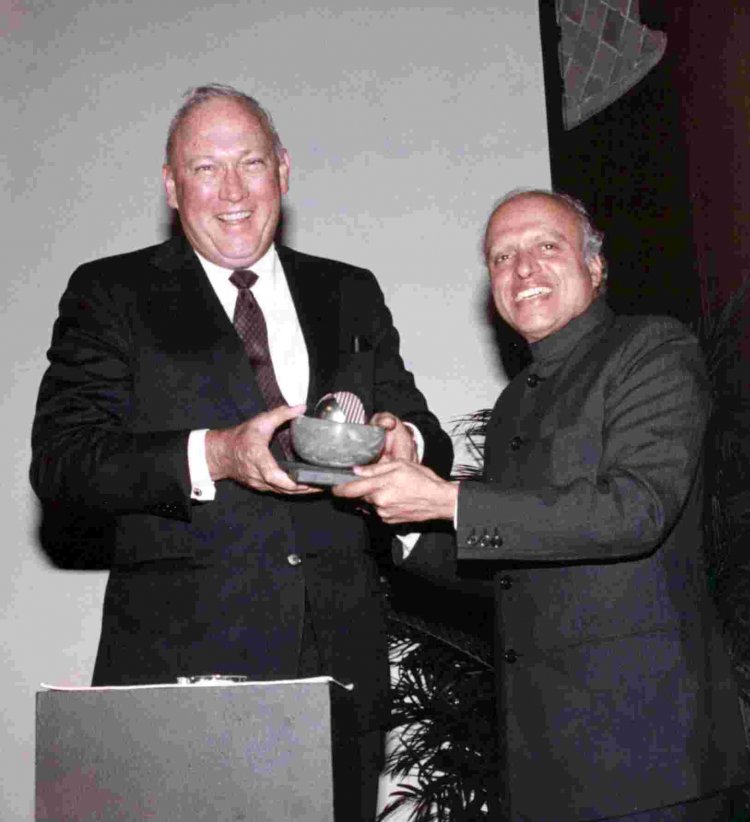
(The World Food Award Foundation awarded the first World Food Award in 1986 to Prof. MS Swaminathan for developing high-yielding wheat and rice varieties in India. After the death of Prof. Norman Borlaug in 2009, Prof. Swaminathan Was the Chairman of the World Food Award Selection Committee for many years.)
The third major achievement of Prof Swaminathan was his simple and gentle way of communicating complex agricultural techniques at different levels of the society, explaining them in easy language and making the technical knowledge and technology reach the fields and barns.
Due to these qualities, the era of agricultural science and technology in cereal crops moved forward and in the 1980s, hybrid method started being used on a wide scale in millet, sorghum, cotton and vegetables in the form of high yielding hybrid seeds.
By 2002, due to the proper use of biotechnology, a new cotton revolution took place in the country and India became the largest producer of cotton. As a result of his guidelines and the hard work of the farmers, today the country is full of food grains. In the year 2022-23, India achieved record production of food grains and horticultural crops at 33 crore and 342 million tonnes respectively. Having fulfilled its food security, today India's exports of agriculture and food items to the world have crossed US$ 50 billion.
India could ensure food security even during a pandemic like COVID-19 due to the availability of adequate grains in our warehouses. India set an example for the world by ensuring two meals a day to the country's population and also by providing adequate quantities of food items to other countries. But in this era of global warming and climate change, farmers are facing countless challenges to ensure food security. In such adverse circumstances, strong efforts will have to be made to focus on scientific methods of food production and create a food secure nation.
Be it organic or natural farming or investment intensive commercial farming, we need to adopt evidence and science-based approaches to food production. We have to motivate our farming community to adopt new methods and modern systems so that their income and price realization can increase. In this way the farming community will be able to become an important part of the country's progress. Farmers have to be given top priority in India's policies and programs and they have to be strengthened to deal with biotic and abiotic challenges.
Following the path taught by Prof Swaminathan, agricultural research institutes will have to do important work towards strengthening farmers and farmer product organizations to adopt scientific methodology. Keeping food security in mind, in India, especially in resource-poor agricultural areas, there is a lot of diversity in the farming environment and agricultural assets. These variations significantly affect the income and expenditure of the agricultural industry due to limited resources and limited dissemination of technology. There is a difference. This gap has to be bridged through agricultural science, technology and innovation and general agricultural sectors must be made more profitable.
Along with this, priority will have to be given to farmer welfare through increase in farmers' income and agriculture related business. We all have to work together to ensure that our every step is for the welfare of the farmers.
To disseminate modern technology and agricultural knowledge to the farmers so that our farmers can implement the technology suitable for their needs and climate. With proper agricultural knowledge, technology and innovation reaching the fields and barns, agricultural production will increase, productivity will be stable, the product will be full of quality and will pass the test of export.
Such efforts will bring prosperity in the agricultural sector, increase the income of farmers and ensure food security. Only then will it be possible to move from Professor Swaminathan's 'Green Revolution' to 'Evergreen Revolution'.
(The author is the founding director of South Asia Biotechnology Centre, Jodhpur.)



 Join the RuralVoice whatsapp group
Join the RuralVoice whatsapp group

















